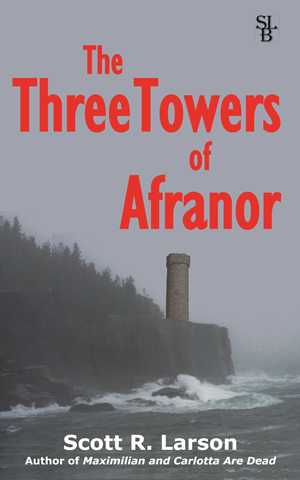“It turned out to be the hate election because, and let’s not mince words, of the hatefulness of the electorate. In the years to come, we will brace for the violence, the anger, the racism, the misogyny, the xenophobia, the nativism, the white sense of grievance that will undoubtedly be unleashed now that we have destroyed the values that have bound us. We all knew these hatreds lurked under the thinnest veneer of civility. That civility finally is gone. In its absence, we may realize just how imperative that politesse was. It is the way we managed to coexist.”Let us take a moment to savor the complete lack of self-awareness in the above quote. Even as he is tarring millions of his fellow citizens with epithets like racism, misogyny, xenophobia and nativism, Neal Gabler styles himself as the last vestige of civility and politesse. He cannot logically have it both ways. Either he can elect to be the spokesman of all the throbbing anger in blue state America directing itself venomously at its red state cousins or he can choose to be polite and civil. Neither he nor anyone else (myself included) can be both things at the same time.
—Historian/critic Neal Gabler, in a piece titled “Farewell, America” on BillMoyers.com, November 10
People generally fall into this paradox because they see themselves as being above partisan disputes—even while they are in the throes of them. This is because they know The Truth and are thus entitled to condemn others righteously. It is not particularly attractive or useful when religious fundamentalists do it and even less so when modern liberals do it.
We are seeing a lot of this sort of hyperbole in the wake of the November election. People who, only weeks ago, were arguing for respect of other countries, no matter what their political values, are now ready to declare war on Russia. It is like some sort of mass hysteria.
One of the most jaw-dropping examples I have seen of absent self-awareness was in the December 19 issue of The New Yorker. In the “Shouts & Murmurs” humor section, there was a piece by Cora Frazier entitled “Katniss Everdeen, White House Intern Application.” First, let me go on record as having long been a fan of The New Yorker’s cartoons and arts coverage. Its humor in prose, though, usually goes right past me. I found this particular item, however, very funny but not for any reason the writer must have intended. Her clear intent in invoking the protagonist of The Hunger Games was to portray President-elect Trump as the books’ evil President Snow. What people at The New Yorker do not seem to understand is that, for many people outside New York and other urban areas, New Yorker writers are the very epitome of the over-privileged, fatuous Capitol dwellers living it up while folks in the rural hinterland scrape by to survive, as portrayed in Suzanne Collins’s books.
Would Katniss Everdeen be a Trump supporter? Well, as portrayed in the movies (full disclosure: I know only the movies and not the novels) she certainly is a disrupter. I doubt, however, that it was author Collins’s intention to write a coded book series about the Tea Party or the Alt Right. Yet that is nearly how it plays. The urban/rural divide laid bare by the U.S. election results looks like nothing so much as the economic/cultural tensions in the fictional country of Panem. Yet Cora Frazier, whose stock and trade as a New Yorker humor writer should be nothing if not irony, apparently saw none in aligning Ms. Everdeen with the Wall Street fatcats and capital dwellers who uniformly supported Hillary Clinton. Or maybe we were meant to see her version of Katniss as a die-hard Sanders supporter?
Therein lies the challenge for Democrats. They have to stop believing their own propaganda that they are the party of the working class and actually again become the party of the working class. That is, if they want to. If they do not—after all, I hear the American working class is full of racists and xenophobes—then they should decide what they really do want to stand for. Once they have done that, then they must say so clearly and act accordingly.
Perhaps they could become the party of the new Cold War. After all, these days they really seem to be itching for a fight with the Russians.
Here is some more unsolicited advice for Democrats (and Republicans, for that matter). Do not demonize people because they do not see things the same way you do—especially if you are hoping to get some of them to vote for you. Not every policy dispute is an apocalyptic struggle of good and evil. Most importantly, though, try to keep a sense of humor. Otherwise it is going to be a long four or eight years for New Yorker readers.
